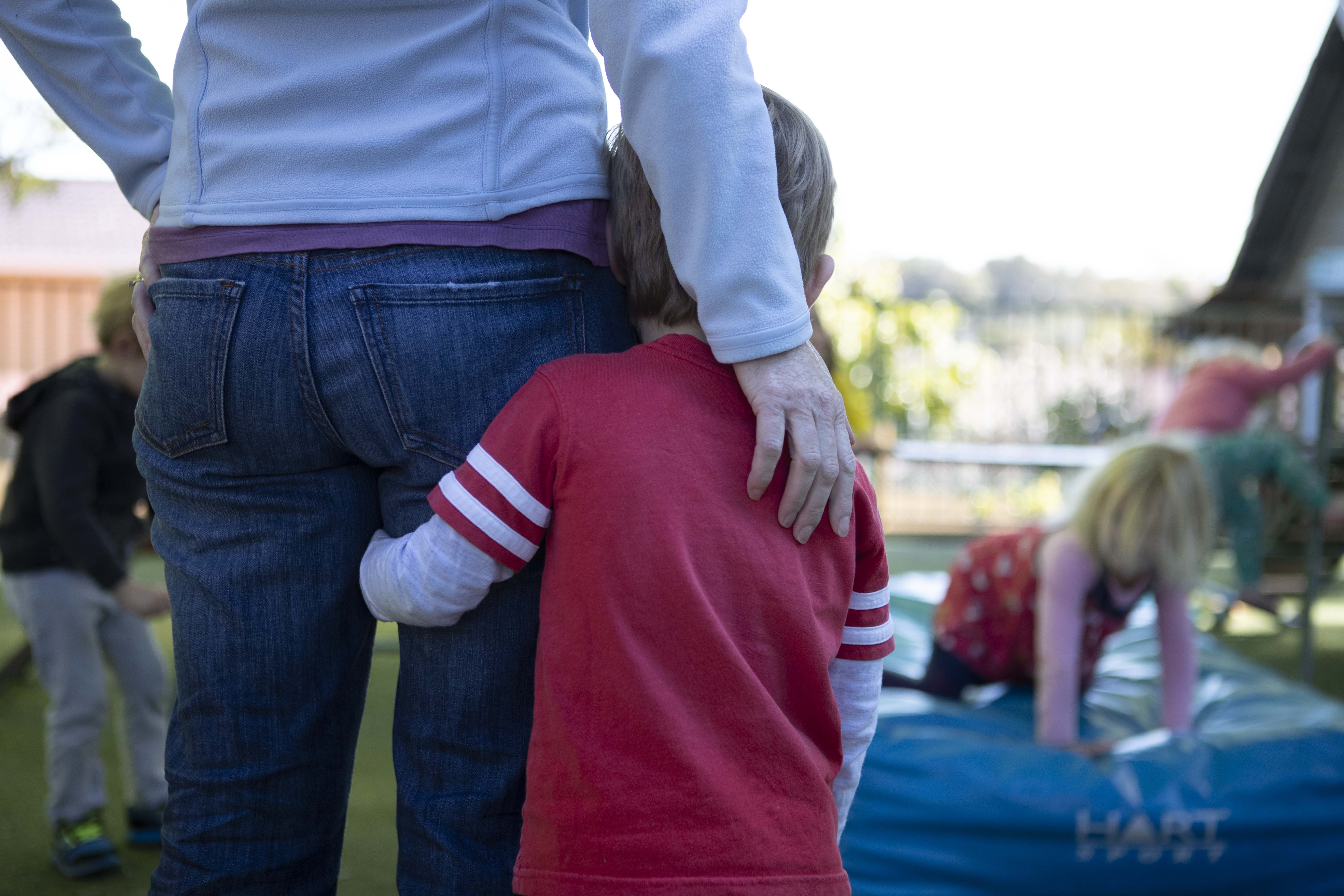
A particularly stressful situation is when children start kinder or young people begin primary school.
Separation anxiety refers to the fear children and young people have when being separated from their parents or caregivers. It’s very common in early years. The Australian Parenting Website has some great tips for helping a child deal with starting childcare, kinder or school that can be equally useful for educators.
Separation anxiety refers to the fear children and young people have when being separated from their parents or caregivers. It’s very common in early years. The Australian Parenting Website has some great tips for helping a child deal with starting childcare, kinder or school that can be equally useful for educators.
- Help your child adapt to a new setting by spending time at the new place with them before the separation. If you’re there when your child is introduced to their teacher or caretaker, they’re more likely to develop trust quickly.
- If your child is feeling very upset and showing signs of separation anxiety before you arrive, have a chat to the childcare centre or the school so they’re aware of the situation.
- Tell your child when you’re leaving and when you’ll be back. Sneaking out can make matters worse. At the same time, don’t drag out your goodbye.
- Keep a calm and cheerful manner when leaving. If you look stressed, your child will likely pick up on this and get upset.
- Don’t use negative phrases like, “stop being such a baby”. Instead, reinforce positive behaviour by complimenting them when they are behaving well.
At home, parents can work together with children to develop coping strategies for their anxiety. Here are six tips you as educators can pass on to parents to help them stay on top of things:
- Slow down. This is always the best place to start. Take some slow, deep breaths together. Breathe in for three seconds, hold for three, then out for three. Once they're feeling a bit calmer, you can talk through what's worrying them.
- Think positive. Remind them of times they've dealt with similar issues. “Remember the time your friend Andy didn’t play with you at lunch, you played tiggy with Keely and Matt and had a great time.”
- Help them to challenge the scary thought with facts. “Sharks can’t live in a swimming pool.” “Every time Mum goes out for dinner, she comes back.” Make a plan together for what to do if things don't go as they'd like. “If you forget your workbook, it’s okay, just borrow a piece of paper to write things down and we can glue it in later when we’re home.”
- Have a go. Children often worry about making mistakes. This can lead to them avoiding situations or activities. Encourage your kid to give new things a try and let them know that it’s about fun, not being perfect. Here’s some tips on building resilience.
- Check yourself. Try taking a step back and wait before you jump in to help your child. Figuring things out for themselves, learning to problem-solve, is an important step and will help them to be a resilient adult. Over-protective family members can reinforce a child’s fears that the world is a dangerous place and that they can’t handle it.
- Be the example. Be a model for your child. Kids pick up signals from adults, so by showing calmness in dealing with stressful situations, you are showing them the way.
View our Fact Sheet for more information on separation anxiety and how educators can help children manage. Register for Be You today to begin helping children and young people achieve their best possible mental health.